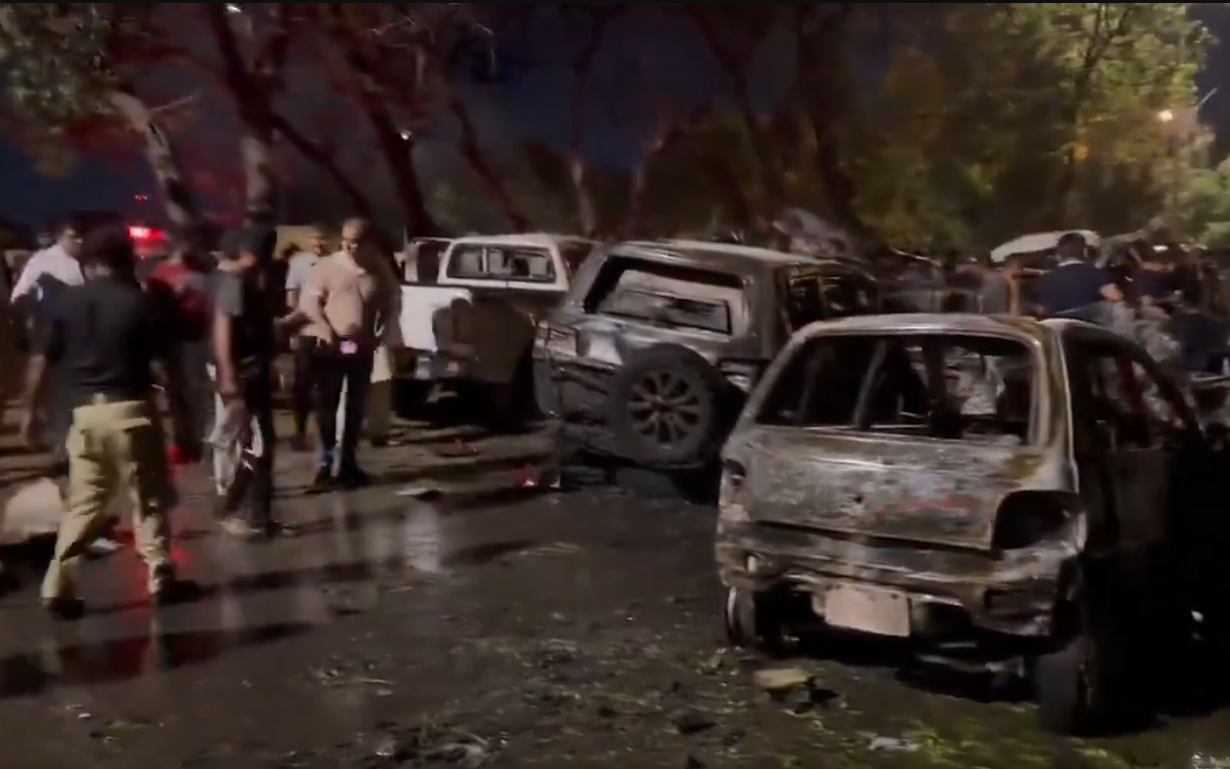Belucistan attack and other opposition in Islamabad
Fighters of the Belucistan Liberation Army claimed responsibility for the attack in which three people died, two of whom were Chinese citizens. Yesterday, the government also banned a Pashtun organisation, an ethnic group, like the Beluchis, marginalised and abused by the army because of its proximity to the Taliban. There are growing protests from those calling for the release of former premier Imran Khan.
Karachi (AsiaNews/Agencies) - The Pakistani government's difficulties in managing rebel and opposition movements on its territory are increasingly evident. Late on Sunday evening, 6 October, a terrorist attack at Karachi airport killed three people, including two Chinese citizens, and wounded 10 others.
The action was claimed by the Majeed Brigade of the Army for the Liberation of Belucistan (BLA), a terrorist organisation that has for years opposed agreements between Pakistan and China for the exploitation of Belucistan's resources. In an e-mailed statement to journalists, the separatist group claimed that the explosion was caused by an explosive device placed in a vehicle. The target was ‘a high-level convoy of Chinese engineers and investors’ coming from Karachi airport.
Analysts emphasise that this umpteenth attack (in March, five engineers from China had died in a suicide attack) not only demonstrates the Pakistani government's inability to protect Chinese citizens (who are in Pakistan to manage infrastructure projects financed by Beijing, in particular the port of Gwadar), but also that the BLA, from an insurgency group limited to marginal areas, is turning into a wider network of militants capable of striking even in the big cities.
The province of Belucistan is located in the south-west of Pakistan on the border with Afghanistan and Iran. Here, more than 70 people were killed in armed attacks by separatist militants in August alone. Several commentators have pointed out the support the BLA enjoys among the local population, which has tried to maintain its ethnic, linguistic and cultural identity. Belucistan is also the poorest of all regions in Pakistan. The multidimensional poverty figure, which is 39.4 per cent nationwide, rises to over 70 per cent here. Moreover, in a province that covers 44% of the territory, there is a lack of infrastructure and investment in the energy sector, and only 14% of the Beluchis live in urban areas, creating de facto isolation between the Beluchis and the rest of the country.
In the past year, however, attacks have also increased in Khyber Pakhtunkhwa, where the Pakistani Taliban (Tehreek-e Taliban Pakistan or TTP) is active. According to data from the Pakistan Institute for Conflict and Security Studies, 757 people (both civilians and members of the security forces) died in armed attacks in the first eight months of 2024, including 254 in August.
Yesterday, the government, led by Prime Minister Shehbaz Sharif, banned the Pashtun Tahaffuz Movement (PTM), an organisation for the rights of the Pashtun ethnic group - divided between Pakistan and Afghanistan -, saying that the PTM was ‘involved in certain activities that are detrimental to the peace and security of the country’. The PTM has long denounced abuses by the army against civilians in Khyber Pakhtunkhwa. The group also claims that more than 200 activists have been arrested in recent days, shortly before an important jirga (council of elders) scheduled for the weekend. This is an assembly where the main issues affecting Pashtuns are discussed. The Independent Human Rights Commission of Pakistan (HRCP) has called for the lifting of the ban on the PTM.
The Taliban of Afghanistan, who have never stopped meddling in Pakistan's political affairs since returning to power, expressed their support for the MNC and urged Islamabad to ‘address the legitimate demands of the people through dialogue’. Kabul also extended its support to former premier Imran Khan, who, despite being in prison for more than a year, continues to lead the protests of his party the Pakistan Tehreek-e-Insaf (the Pakistan Justice Movement or PTI). In recent days, PTI supporters ( including several Afghans) have returned to protest against the government in Islamabad demanding the release of Khan and other party leaders. In response, the government blocked the Internet and accused the protesters and Khan himself of ‘rebellion against the state’ and ‘terrorism’. And proposed new constitutional amendments that could also ban the PTI.







.png)










